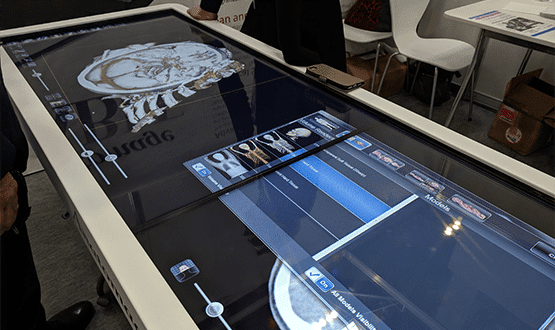Lorenzo’s toil
- 16 September 2010
Nobody ever pretended that getting a big, complex IT system into a big, complex organisation like an acute hospital trust would be plain sailing.
Yet fourteen weeks in, it is clear that the deployment of Lorenzo at University Hospitals of Morecambe Bay NHS Trust has caused major and persistent problems, with outstanding issues including one part of the system wrongly identifying live patients as dead.
Unsurprisingly, the tone of the weekly updates to staff on the implementation of the iSoft electronic patient record system by local service provider CSC, is one of steady disillusionment.
The note struck by the first email from chief executive Tony Halsall, is one of understandable pleasure.
“I am happy to announce that the full implementation of Lorenzo was completed on Thursday, 3 June 2010. It is now fully up and running across our hospitals,” he says. “Whilst it has been a hard week for everyone involved, I am pleased that, in overall terms, everything is going well.”
Fourteen weeks on, however, the trust is promising staff a ‘stabilisation plan’ to deliver a system that will allow staff to “transact a day’s work in a working day” instead of “spending extra hours inputting information.”
Its management is also pleading with them to stick with it. “We would all prefer it if the system worked perfectly straight away, but as with any major IT deployment we were bound to come across problems once we were using it in a live environment.
“We cannot change where we are now. What matters is that we all continue to work together to identify and solve any problems and get Lorenzo to a place where it is working in the right way for all of us.”
A month in the country
When asked for a statement in response to the updates that have been seen by E-Health Insider, the trust denied that it had ‘growing’ problems with Lorenzo.
Patrick McGahon, director of service and commercial development at the trust told EHI in a statement: “The number of issues reported is not currently increasing and no new major issues have been identified.”
This appears to be true, in the sense that the list of problems appended to each of Halsall’s emails is approximately the same length, and many of the new problems that appear each week are relatively minor (‘the spell checker is not working correctly for clinical letters’).
On the other hand, the trust has apparently had to cope with a significant volume of problems week on week, some of them serious or persistent or both; and this has apparently taken its toll on staff.
So, the ‘Lorenzo – two weeks in’ update says that the “roll out is an incredible achievement”, with usage growing to 850 unique log-ins per day.
It acknowledges that there have been “teething problems” with “staff… finding some things that they used to do really quickly in iPM taking longer in Lorenzo.” But it says most of the problems are related to logging into the system, issues with smartcards, and ‘how do I do’ requests.
A week later, and it “continues to be a busy time for everyone” with usage up to 1,000 unique logins per day. There are still login and ‘how do I do’ queries, but more ‘high impact’ issues are being reported as staff get to grips with the system.
In ‘Lorenzo – four weeks in’, the first list of these appears, with “the system is slow” heading the charge.
Problems with the Commissioning Data Set output – the reports that the trust uses to get paid – are fifth item down, ‘Choose and Book appointments being cancelled by Lorenzo’ are sixth item down, and ‘Clinics are appearing as full when there are actually slots available’ are seventh item down.
After the list, there is also the first appeal for staff to bear with the new system. “We are leading the way in NHS IT and we wouldn’t have got to where we are today without your continued support,” Halsall writes. “I understand the system may cause you some frustration at times… if you continue to work with us, we can all reap the benefit that Lorenzo offers.”
Many weeks after
By week seven, the trust has set up ‘Lorenzo clinics’ to encourage staff to continue to report problems, so managers can focus on “prioritising the key issues that need to be resolved to improve the system’s performance and usability.”
The issues log says the system is still slow, and “some additional staff” have been taken on to work through a backlog of data in some areas. None of the CDS, Choose and Book or clinic slot availability problems have been resolved, although fixes have been devised for the latter two.
Two updates to blast tens of issues are promised. The week eight email says that a major update will take place in five weeks and “include 270 fixes.”
By ‘Lorenzo – ten weeks in’, Halsall is thanking staff for “their perseverance through this difficult transition period” and their “frank and helpful feedback.” Staff are assured that CSC and the informatics team are working with operational divisions “to try and deliver a stable system that allows normal workloads to be delivered.”
On a positive note, the week eleven email is able to report that some improvements that staff have suggested have been taken up, with a trial underway of multi-session usage of Lorenzo (allowing one user to have more than one session open at one time on their smartcard).
Unfortunately, the week twelve email opens by saying that: “We are still experiencing problems following the last upgrade” which was intended to address such persistent problems as Choose and Book, Access planning, inpatients, and referral management.
“To ensure this doesn’t happen again,” Halsall writes, “the project team and CSC have further developed the comprehensive testing regime they run on all the upgrades received before accepting them into Lorenzo.”
Testing times ahead
Still, he adds, there is no going back. Instead, in week fourteen, the trust announces a ‘stabilisation plan’ to “deliver a series of upgrades, fixes and changes to the core Lorenzo application” to try and get staff time using the system under control.
‘Lorenzo – fourteen weeks in’ says that the work will be taken forward in four areas: referral management, outpatients, inpatients and configuration, including the production of letters (another area bedevilled by problems from the outset).
Two further batches of fixes have been identified, with 147 improvements to be delivered in mid-September and 200 in October.
Unsurprisingly, a Lorenzo go-live in the emergency departments of the trust’s main hospitals in Barrow in Furness and Lancaster has been put off “to allow more time for the initial release to bed into business as usual operations.”
This update, from McGahon, opens by thanking staff for their “continued patience and persistence”, saying their “dedication and support is phenomenal” and assuring them “we really couldn’t do this without each and every one of you.”
He signs off by saying “we will keep you updated of progress.” Yet it looks as if Lorenzo has a long way to go.
A lot rests on it finally coming right; not just for the trust, but for the LSP contract and those trusts in the North Midlands and East that still hope to take the system.
Last week, director general of informatics Christine Connelly made it clear that CSC’s milestone payments depended on successful implementations of Lorenzo at Morecambe Bay and three other trusts, while expressing confidence that it was worth sticking with this part of the programme.
Yet the next trust due to take the system, Birmingham Women’s NHS Foundation Trust, has put back its go-live date, saying that it wants to be sure it is “safe to deploy.” Reading the staff updates on its progress at Morecambe Bay, it is not hard to see why.




